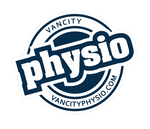Physiotherapy is an essential aspect of healthcare, helping individuals recover from injuries, manage chronic pain, and improve overall physical function. With various types of treatments available, it can be challenging to determine which approach is right for you. In this blog, we’ll explore the most common types of physiotherapy treatments, including shockwave therapy, concussion therapy, pelvic floor rehabilitation, and TMJ therapy, and how to choose the one that best meets your needs.
1. Manual Therapy
What It Is: Manual therapy involves hands-on techniques to manipulate, mobilize, and massage the body's tissues. It aims to relieve pain, improve range of motion, and promote healing.
Who It’s For: Ideal for individuals with musculoskeletal issues, sports injuries, or post-surgery recovery. If you experience stiffness, tension, or pain in specific areas, manual therapy may be beneficial.
2. Exercise Therapy
What It Is: This treatment includes personalized exercise programs designed to improve strength, flexibility, and endurance. Physiotherapists guide patients through tailored workouts to enhance recovery and prevent future injuries.
Who It’s For: Suitable for anyone looking to strengthen their body post-injury, improve athletic performance, or manage chronic conditions such as arthritis. If you want a proactive approach to your health, exercise therapy is a great choice.
3. Electrotherapy
What It Is: Electrotherapy uses electrical modalities, such as ultrasound, TENS (Transcutaneous Electrical Nerve Stimulation), and interferential current, to alleviate pain and promote healing.
Who It’s For: This treatment is often recommended for individuals with acute or chronic pain, as well as those recovering from surgery. If you find relief through electrical stimulation, electrotherapy may be the right fit.
4. Hydrotherapy
What It Is: Hydrotherapy involves exercises and treatments performed in water. The buoyancy of water reduces stress on joints, making it easier to move and exercise.
Who It’s For: Perfect for those with joint pain, arthritis, or mobility issues. If you struggle with land-based exercises due to pain or limited range of motion, hydrotherapy can provide a supportive environment for rehabilitation.
5. Sports Physiotherapy
What It Is: This specialized branch focuses on preventing, diagnosing, and treating sports-related injuries. Sports physiotherapists work with athletes to enhance performance and provide recovery strategies.
Who It’s For: Ideal for athletes of all levels, from amateurs to professionals. If you participate in sports and are looking to prevent injuries or recover from them, sports physiotherapy is tailored for you.
6. Pediatric Physiotherapy
What It Is: This area addresses the unique physical needs of children, helping them develop motor skills, recover from injuries, or manage conditions like cerebral palsy.
Who It’s For: Suitable for children with developmental issues or injuries. If you’re a parent concerned about your child's physical development, pediatric physiotherapy may be beneficial.
7. Geriatric Physiotherapy
What It Is: Geriatric physiotherapy focuses on the specific needs of older adults, addressing issues such as arthritis, osteoporosis, and balance disorders to enhance mobility and overall well-being.
Who It’s For: Perfect for seniors looking to maintain their independence and improve their quality of life. If you or a loved one is facing age-related challenges, this type of physiotherapy can provide valuable support.
8. Shockwave Therapy
What It Is: Shockwave therapy utilizes high-energy acoustic waves to stimulate healing in injured tissues. It promotes blood circulation, reduces pain, and encourages tissue regeneration.
Who It’s For: Particularly effective for conditions like plantar fasciitis, tendonitis, and calcific shoulder pain. If you're dealing with stubborn injuries that haven't responded to traditional treatments, shockwave therapy might be the right option for you.
9. Concussion Therapy
What It Is: Concussion therapy focuses on the assessment and management of concussions and other head injuries. This treatment includes a combination of physical, cognitive, and vestibular rehabilitation strategies.
Who It’s For: Essential for anyone who has experienced a concussion or has ongoing symptoms, such as headaches, dizziness, or cognitive difficulties. If you’re recovering from a head injury, specialized concussion therapy can aid in your recovery.
10. Pelvic Floor Rehabilitation
What It Is: This type of physiotherapy focuses on strengthening the pelvic floor muscles, which support the bladder, bowel, and uterus. Treatment may include exercises, education, and manual techniques.
Who It’s For: Suitable for individuals experiencing pelvic pain, incontinence, or issues related to pregnancy and postpartum recovery. If you have concerns about pelvic health, pelvic floor rehabilitation can help restore function and improve quality of life.
11. TMJ Therapy
What It Is: TMJ therapy targets disorders of the temporomandibular joint, which connects the jawbone to the skull. Treatment may include manual therapy, exercises, and education on posture and jaw alignment.
Who It’s For: Beneficial for individuals experiencing jaw pain, headaches, or limited jaw movement. If you suffer from TMJ dysfunction, seeking specialized therapy can alleviate pain and improve jaw function.
How to Choose the Right Treatment
Selecting the right physiotherapy treatment depends on several factors:
-
Your Condition: Understanding your specific injury or condition is crucial. Consult with a healthcare provider to get a proper diagnosis.
-
Treatment Goals: Define what you want to achieve—pain relief, improved mobility, or injury prevention.
-
Personal Preferences: Consider which methods resonate with you. Do you prefer hands-on techniques, exercise, or aquatic therapy?
-
Consult a Professional: A qualified physiotherapist can assess your needs and recommend the most effective treatment plan.
Conclusion
Physiotherapy offers a diverse range of treatments tailored to individual needs. By understanding the different types available, including shockwave therapy, concussion therapy, pelvic floor rehabilitation, and TMJ therapy, you can make an informed decision about which approach is best for your recovery and well-being. Always consult a healthcare professional to ensure you receive personalized care that aligns with your specific condition and goals. Remember, the journey to recovery is unique for everyone—choose the path that feels right for you!
Book a consultation today with one of our professionals.


